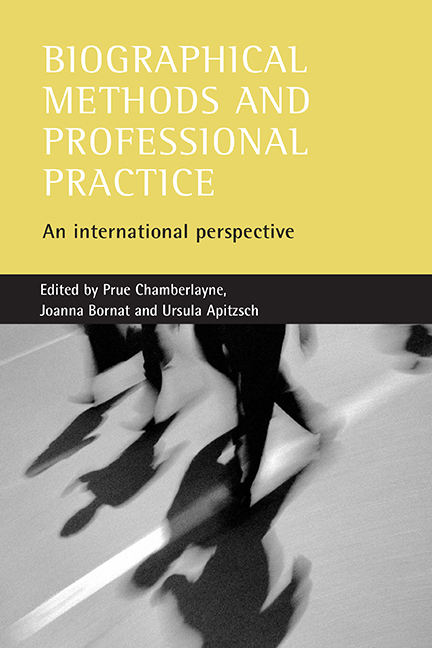Book contents
- Frontmatter
- Contents
- Notes on contributors
- one Introduction
- Part One Putting the subject into policy and practice
- Part Two Subjectivity in context
- Part Three Self-awareness in research and practice
- Part Four Recognising trajectories of disempowerment
- Part Five Biographical resources in education and training
- Index
nineteen - Narratives, community organisations and pedagogy
Published online by Cambridge University Press: 20 January 2022
- Frontmatter
- Contents
- Notes on contributors
- one Introduction
- Part One Putting the subject into policy and practice
- Part Two Subjectivity in context
- Part Three Self-awareness in research and practice
- Part Four Recognising trajectories of disempowerment
- Part Five Biographical resources in education and training
- Index
Summary
This chapter engages with three categories of narrative: stories about teaching a social research course; students’ stories about their practice as researchers; and the stories of 42 women and men working for community organisations in a city in New Zealand. These stories emerge from a teaching programme in which final-year sociology students are involved in biographical research. Students write a life-story narrative drawn from multiple interviews with a single narrator, as well as a research journal, in which they offer an autobiographical account of their research process. They also submit an analytical essay; that is, a sociological commentary that locates the life-story narrative within its historical and social context.
This course draws on ideas about the significance of stories as strategies through which social selves are constituted. According to this account of stories, eloquently articulated in different ways by social analysts like Margaret Somers (1992, 1994), narratives are of ontological significance1: they are the practices through which people make sense of their lives, constitute their identities and know “what to do” (Somers, 1994, p 618). Life stories are relational: they are the product of interpersonal interactions in which stories about biographical ‘episodes’ are used to construct selves (Polkinghorne, 1988, p 21; Borland, 1991; Somers, 1994, p 616). They are conventional, drawing on established story tropes (Plummer, 1995), but also providing “a unique perspective on the intersection of the individual, the collectivity, the cultural and the social” (Laslett, 1999, p 392).
Like most teachers of research, we are also researchers who have asked people to tell us their life stories. Valuing and problematising stories are at the heart of our pedagogical and research practice. This chapter came out of a pedagogical exercise where we subjected ourselves to the challenges we posed for our students. Just as students were required to keep research journals that they later edited and submitted for assessment, so we kept our own journals while we taught this course. These journals and lively lunchtime conversations about lectures and tutorial discussions inform this chapter. The stories we offer about teaching this course are directed not at justifying and legitimating our practice, but at articulating its challenges.
- Type
- Chapter
- Information
- Biographical Methods and Professional PracticeAn International Perspective, pp. 285 - 298Publisher: Bristol University PressPrint publication year: 2004



